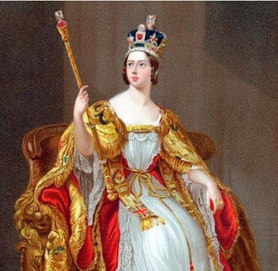
focusing on the effects that
a monarchy has on its
country. The first looks at
whether it matters if a
monarch has constraints on
the use of their power. The
second is a look at the
lingering effects the old
Habsburg Empire has had
on its successor states.
is a study looking at the years between 1848 and 2004. It
makes two key arguments:
-Hereditary rulers lead to economic growth, but only when
executive constraints are weak.
-Economic downturn is the main reason why monarchies fall.
While on the face of it this study looks like a defence for
absolute monarchy an inquiry to one of the paper's authors
painted a far different picture. I was curious what was meant
by 'executive constraints' and whether or not it included
informal rules and convention. Here is what Prof. Tim Besley
wrote in reply:
 Prof. Tim Besley
Prof. Tim Besley formal constraints from the Polity
IV data -- although some "custom
and practice" does go into it if you
look at the codebook. However, it
is mainly formal constraints. In
the case of both Belgium and
Canada, there are string
constraints today but going back
in history that would not be the
case."
also effect constitutional monarchies where the constraints
are informal (such as Britain [and presumably Canada]). Thus
it applies to most monarchies.
The second finding buttresses an argument I have made for a
while: monarchy and democracy make each other function
better. Whenever we have an economic downturn we don't ditch the monarch, we ditch the party in power. Democracy
helps the monarch be a better symbol of stability by negating the effects economic downturns have on monarchs.
The second study I found is The Empire Is Dead, Long
Live the Empire! Long-Run Persistence of Trust and
Corruption in the Bureaucracy. The study examined the
countries that once made up the Austria-Hungarian Empire
and compares them to neighboring countries that did not. It
finds that the countries that were once under Habsburg rule
retain greater public trust and have lower corruption levels.
The theory being that the empire's relatively competent
bureaucracy has had a lasting effect on the region.
While the study is fairly limited in scope it does lead to
interesting questions about the heritage monarchy has gifted
present day countries (many of them republics). The studies I
have posted over the last two years show monarchy has
concrete advantages over republics. This study indicates those
advantages carry over. At least for a time. Are modern-day
republics coasting on their monarchical legacy? Further
research would be interesting.
As always I have added the new studies to Useful Links.
Loyally Yours,
A Kisaragi Colour
 RSS Feed
RSS Feed





